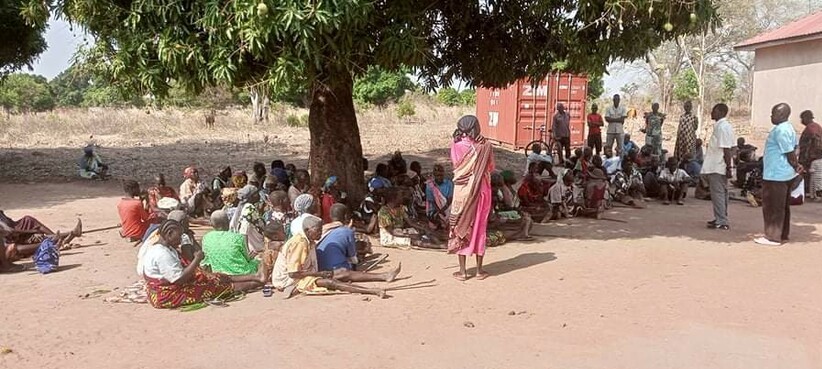Two teachers collapsed while teaching at a school in Tambura County, South Sudan’s Western Equatoria state, due to severe hunger, education officials said.
The incident occurred Monday at Renzi Primary School, a government-run institution in Tambura town.
Grace Apollo Musa, the state minister of general education, told Radio Tamazuj: “Two teachers fainted while in class due to hunger. We were informed that the situation happened during lessons, and this shows how serious the hunger situation has become among educators.”
Minister Grace added that although funds are reportedly available in banks, teachers cannot access their salaries.
“We hear that money is in the bank, but when people go to collect it, they are told there is no cash available,” she said. “Teachers are human beings. They use their energy to teach, but in Tambura, where they have no alternative sources of food, they depend entirely on their salary—which they are not receiving.”
She expressed concern over the teachers’ well-being and called for urgent intervention.
“Our teachers are suffering. Without salary, they are mentally and physically troubled. They collapse in classrooms because they have nothing to eat.”
Mathew Kassiano, the county director of education in Tambura, confirmed the incident, identifying the school as Renzi Primary.
“At around 11 a.m., a teacher collapsed during a lesson. He was taken to the hospital and treated. On the same day, another teacher fainted in a different class. Both were found to be suffering from extreme hunger,” Kassiano said.
He noted that many teachers in Tambura are volunteers who have gone five years without farming and rely entirely on government salaries, which are delayed or unavailable.
“There are no mangoes, no gardens. Teachers wake up early to teach while others go to the farm. But the government has not paid them. That’s why they’re fainting in classrooms.”
Kassiano said students are also affected.
“Children come to school hungry. They can’t concentrate in class. Without proper school feeding, we don’t know what the future holds for education here.”
John Binza, a local government inspector and Tambura resident, shared similar frustrations.
“I work for the government, but I’ve not received a salary. We hear that there’s money in the bank, but there’s no cash. Someone could die while the money is in the bank, unreleased.”
Professionals in South Sudan, including teachers and doctors who earn between $10 and $50 monthly, have faced prolonged payment delays.
The country’s education sector struggles with low enrollment, poor learning outcomes and limited access to quality education, exacerbated by weak governance, inadequate infrastructure and high numbers of out-of-school children.




